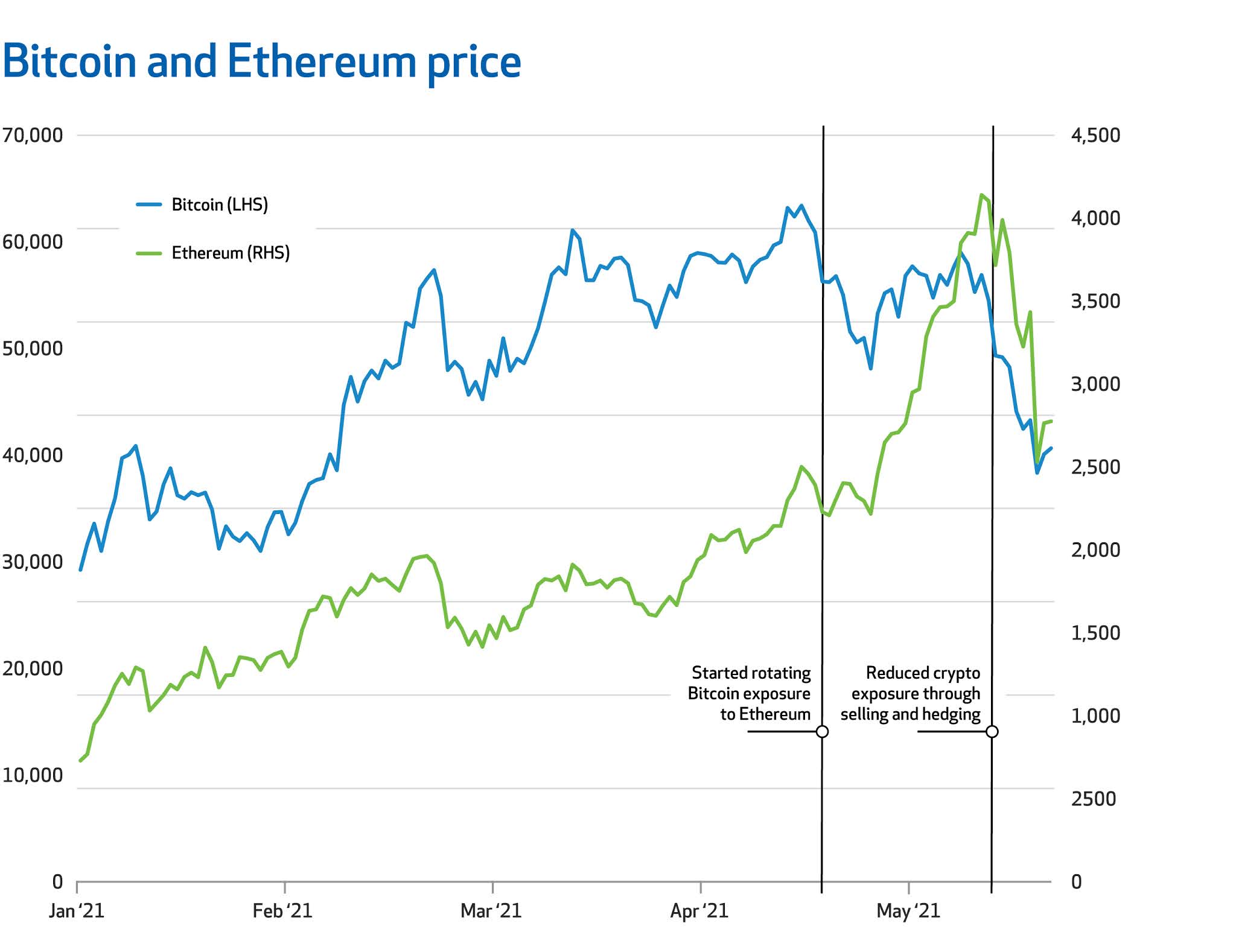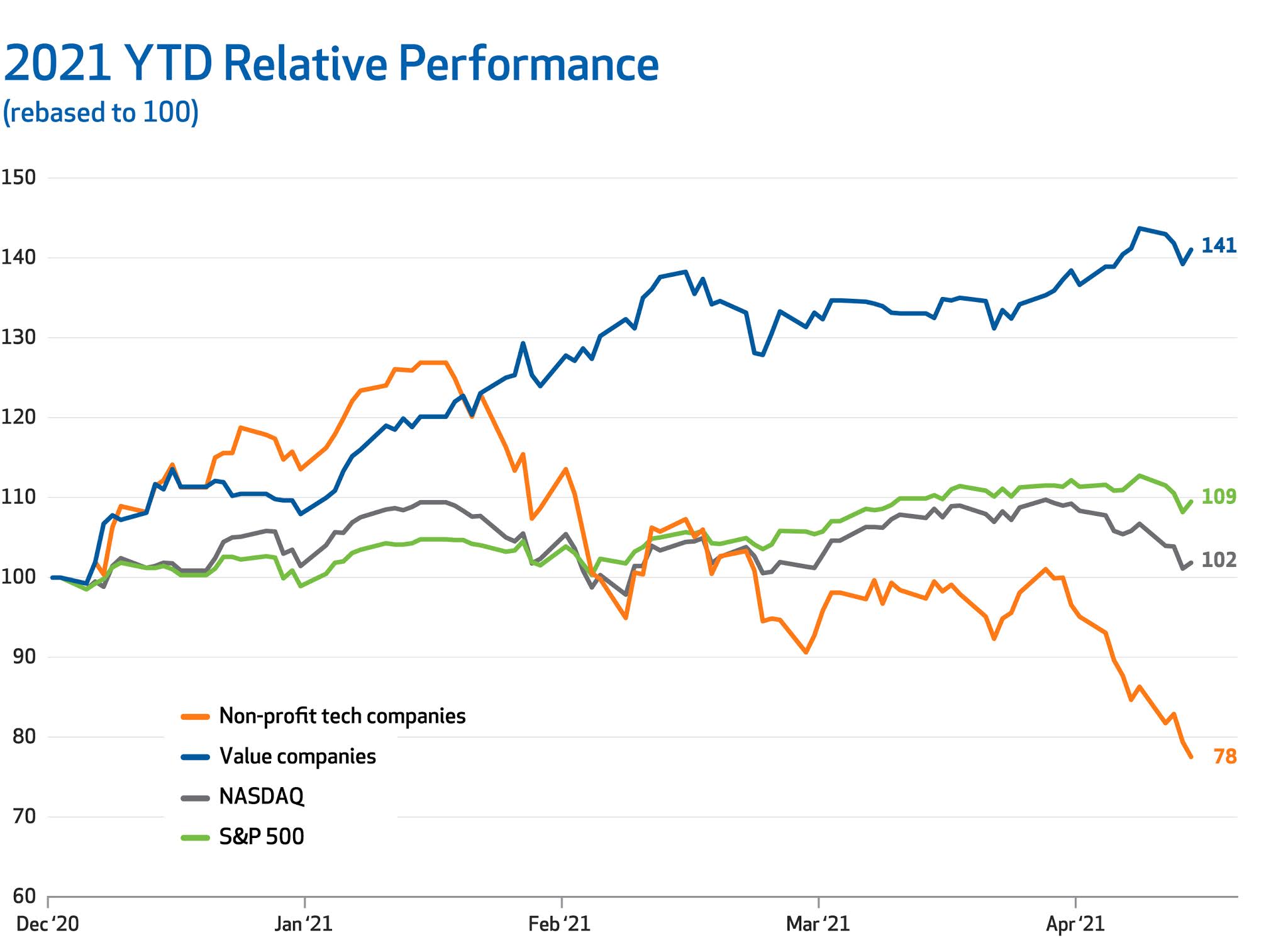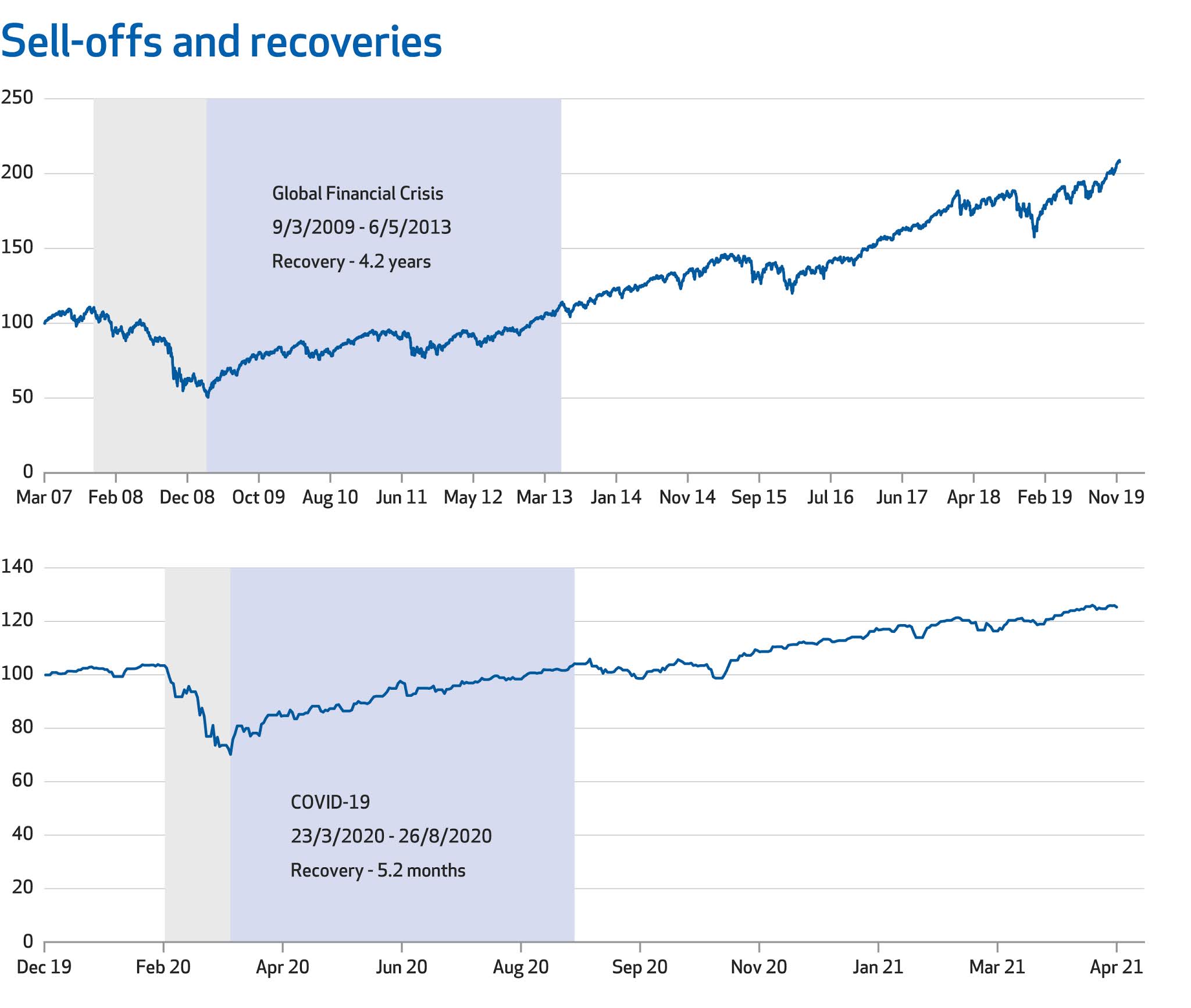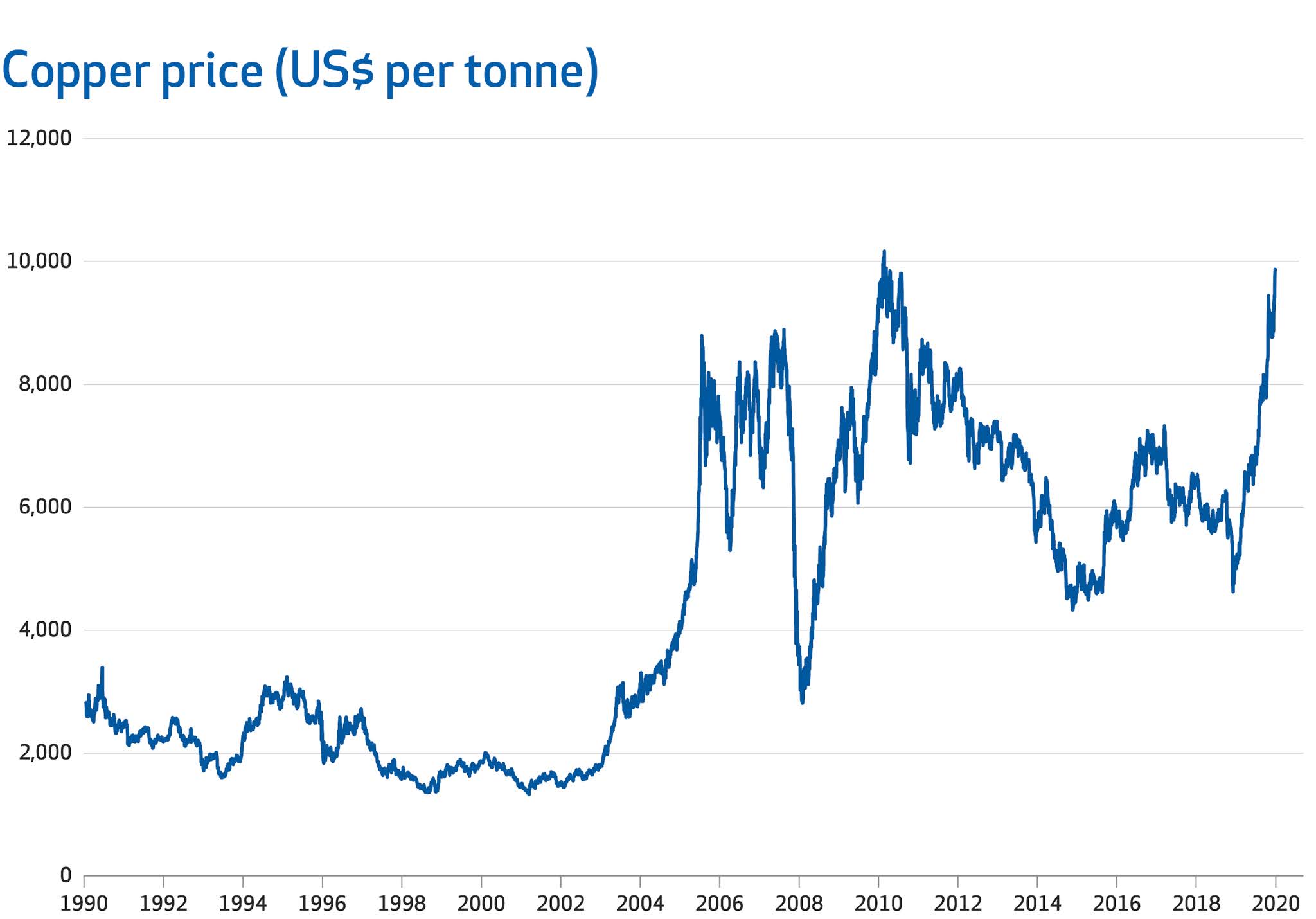Investment Insight | Portfolios profit from cryptocurrencies

On 13 May, NZ Funds sold and hedged its cryptocurrency exposure. We exited Bitcoin at approximately US$55,000 per coin (currently US$41,000) and Ethereum at approximately US$4,100 per coin (currently US$2,900). For growth category investors, the current exposure to cryptocurrency is now less than 0.70%. We are long-term supporters of the future of digital currencies but the volatility risks inherent in this asset class are acknowledged and we manage the positions actively. Active management approach to investing in cryptocurrencies Our approach to investing in cryptocurrency utilises several active management techniques. First, our investment decision is made following detailed research. We look to understand the asset class including its competitive advantages, total addressable market, growth opportunities and risks. On concluding that we see attractive upside returns compared to the potential downside, we will look to make an investment. Cryptocurrency’s volatility and



